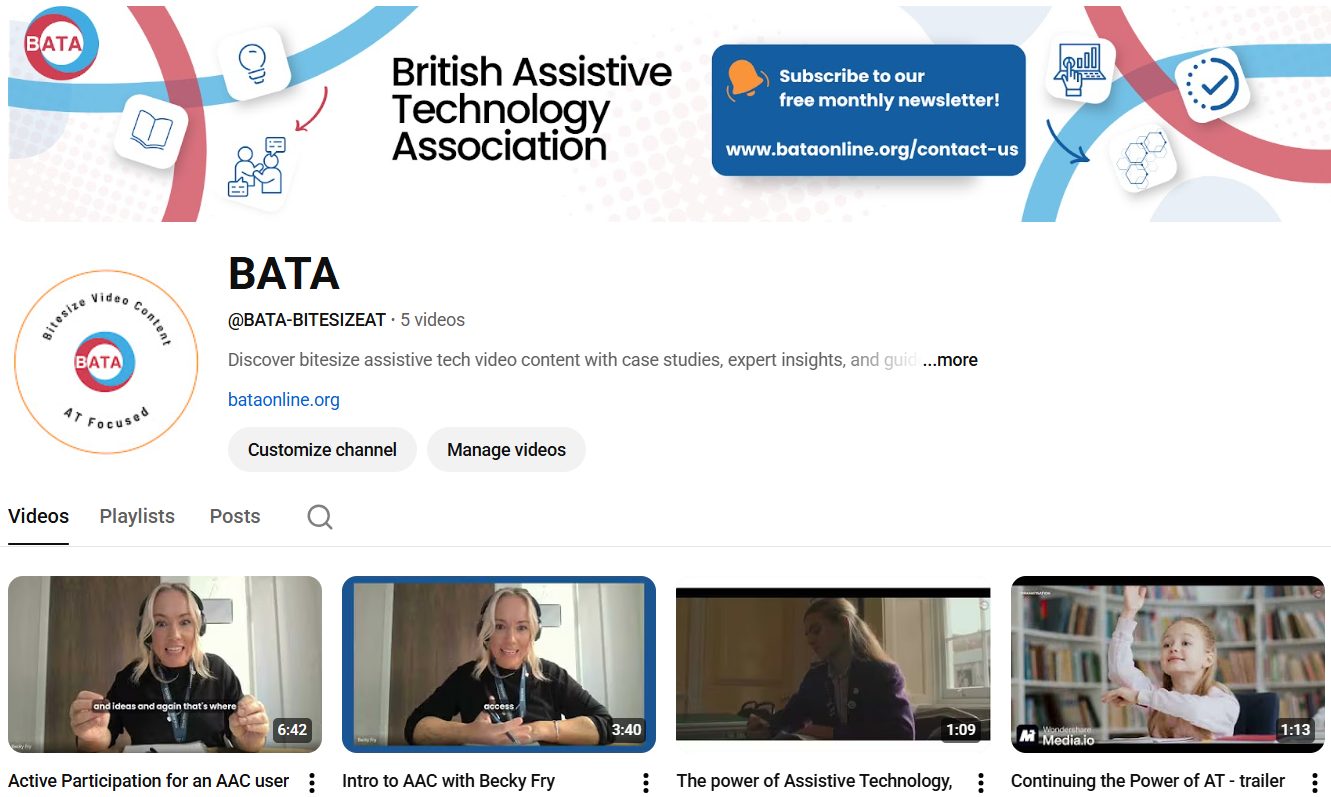BATA Resources Page
Discover our video resources on YouTube
BATA’s YouTube channel offers bitesize AT tips from the experts, as well as user stories showing how AT has positively impacted the lives of people with disabilities and neurodiversity.
Useful Contacts
There are many charities and organisations in the UK providing information and services across a wealth of different needs and challenges.
Types of Assistive Technology
There are many different types and categories of assistive technology. These can be software or hardware devices and can be used to meet a vast array of different needs and challenges, but all of them are designed to assist individuals successfully fulfil a task which they might otherwise find challenging. As an organisation BATA aims to represent the Assistive Technology sector and to advocate and inform about the benefits of assistive technology. Whilst we do not recommend individual products, we have put together some information about the different types of AT and some products included in each category as a starting point for you to find out more.
Accessibilty in the Workplace
With the right tools everyone can be productive and fulfilled at work.
Click here to find out more the Access to Work Scheme
Click here to find out more about the Disability Confident Employer Scheme
BATA members who offer workplace assessments, guidance, training and coaching:
Accessibilty in Higher Education
The Disabled Student Allowance (DSA) is a Government Scheme aimed at supporting students in higher education.

